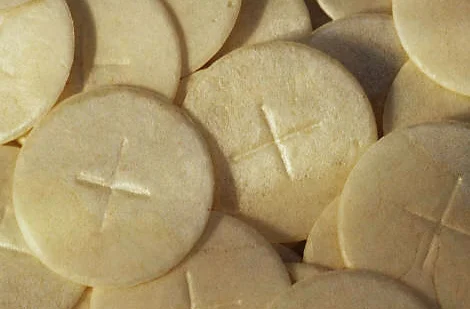In most news reports, Mother Teresa seemed like such a nice, quiet holy woman.
But as any reporter who actually interviewed her quickly learned, Calcutta's "saint of the gutters" could be remarkably blunt. She once noted – in a half-serious jest – that she would rather bath a leper than meet the press.
"Mother was not known for the ambiguity of her feelings," noted Archbishop Charles Chaput of Denver, at a recent gathering of journalists at the Pew Forum on Religion & Public Life. "A lot of people in the church, especially those who practice their faith in an active and regular manner, would agree with what she meant – because they feel the same way."
The archbishop stressed that he does not feel that way, especially when working with journalists who have acquired the knowledge and skills needed to do accurate, critical coverage of religion. However, he is convinced that many religious believers simply do not appreciate the vital role that journalists are supposed to play in public life.
"Journalism is a vocation, not a job," said Chaput. "Pursued properly, journalism should enjoy the same dignity as the law or medicine because the service that journalists perform is equally important to a healthy society. I really believe that. You form people. You form the way they think and the way they live their lives. So journalists have a duty to serve the truth and the common good."
That's the good news. I have heard Chaput make that point more than once during the quarter of a century since I first met him, while he was a Capuchin-Franciscan priest in urban Denver and I was a newcomer on the local religion beat.
Chaput was already interested in mass media, popular culture and the changing landscape of American religion and those interests only deepened when, in 1988, he was ordained Bishop of Rapid City, S.D. Soon after he returned to Denver as archbishop, in 1997, he organized a conference on the cultural and religious implications of the Internet.
These were precisely the kinds of topics that I wanted to emphasize when – 21 years ago this week – I began writing this column for Scripps Howard. Our interests also overlapped when I began teaching about religion and mass media, first in a Denver seminary and then in the Council for Christian Colleges and Universities. Our paths have been crossing ever since.
When it comes to journalism, Chaput knows the good news and the bad news.
The bad news, he said, is that far too many journalists who cover religion events have no idea what they are doing. They may be talented and intelligent, but when it comes to religion they just don't get it.
"I don’t expect journalists who track the church to agree with everything she teaches. But I do think reporters should have a working knowledge of her traditions and teachings," he said. "I do think editors should have the basic Catholic vocabulary needed to grasp what we’re talking about and why we’re talking about it."
Consider, for example, the media storms surrounding discussions of Holy Communion and the sacramental status of Catholic politicians who disagree with their church's doctrines on abortion, marriage and similar issues. In his book "Render Unto Caesar," Chaput argued that it's the "political duty" of Catholics to "know their faith and to think and act like faithful Catholics all the time" – even those who work inside the Washington Beltway.
Alas, the journalists think they are writing about the rights of politicians, while some Catholic bishops want to discuss the salvation and, yes, damnation of souls. If journalists insist on describing this conflict in strictly political terms, he said, there is no way the public will ever understand what is happening.
"No one ever has a right to the Eucharist, and the vanity or hurt feelings of an individual Catholic governor or senator or even vice president does not take priority over the faith of the believing community," said Chaput. Thus, while journalists are under "no obligation to believe what the church teaches ... they certainly do have the obligation to understand, respect and accurately recount how she understands herself, and especially how she teaches and why she teaches" these doctrines.
Too often, said the archbishop, inaccurate news reports about this controversy have left the impression that "access to Holy Communion ... is like having bar privileges at the Elks Club."




